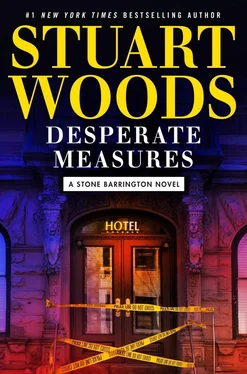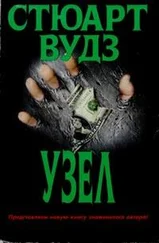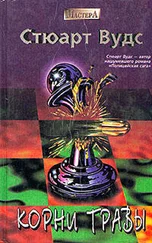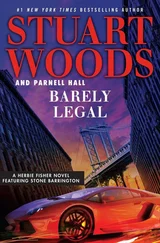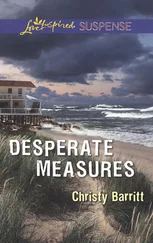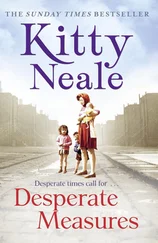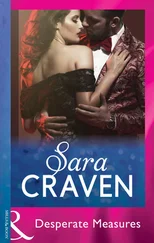Stuart Woods
Desperate Measures
The early-morning conversation had taken place in bed in London, after drinking brandy with guests until the wee hours. So if Stone had once remembered what was said, he had now forgotten it.
He struggled to put it together in his mind during their flight from his house, Windward Hall, in England, back to Teterboro, but he had failed. There wasn’t much conversation on the airplane, but he put that down to Kelly’s hangover, which must have been as monumental as his, since she had matched him drink for drink. Once they were back at his house in New York, they had dinner and went to bed early.
He woke at seven the following morning, a preordered breakfast on a tray resting on his belly. There were empty dishes on her side of the bed and sounds of packing from her dressing room. His eggs were cold, but he ate them anyway, to settle his stomach.
Kelly came out of the dressing room naked, with predictable results. When they were spent, she stood up.
“I told you yesterday that I’d gotten a chopper ride back to Langley today, didn’t I?”
Of course she had, he could remember that much. “Surely, not at this hour,” he said.
“I’m to be there at nine-forty-five sharp for a ten o’clock departure, and I can’t miss it. Fred can drive me to the heliport.”
“No,” he said, getting up. “I’ll drive you myself.”
“Thank you,” she said, then went back into the dressing room.
He surveyed his face in the bathroom mirror and was surprised to find that he didn’t look like a man with a hangover. What was more, he didn’t feel like a man with a hangover. He felt perfectly normal, except that he still couldn’t remember their conversation in London. He shaved, showered, dressed, and called down to Fred, his factotum. “I won’t need you this morning,” he said. “I’ll drive myself.”
“As you wish, Mr. Barrington,” Fred replied.
In the car Kelly said, “Fred is going to collect my other luggage at the hotel and send it to me.” She had a suite in a residential hotel not far from his house.
“Plenty of room at my house,” Stone replied.
“Stone,” she said, “do you remember our conversation in London?”
“Of course,” Stone lied.
“Because you’re not behaving like a man who’s being abandoned.”
That rocked him. “‘Abandoned’?”
“Do you remember my telling you that I’m returning to the Agency — and that they want me to live down there in a place they’ve found for me?”
“Yes,” he lied again, “and I’m very sad about it.” That last part wasn’t a lie; he suddenly felt overwhelmingly sad.
“It’s sweet of you to say so, but I think you’ll have forgotten me before long.”
Stone knew a cue when he heard one. “I’ll never forget you,” he said.
“Oh, shut up!” Kelly cried, beginning to weep. “Did you expect me to pass up a promotion and give up a career I’ve put fourteen years into?”
“I’m not sure what I expected,” he said. And that wasn’t a lie, either.
He drove to the East Side Heliport, was admitted to the ramp, and stopped beside the experimental Sikorsky X-2 helicopter the Central Intelligence Agency was testing for the builder. The pilot stowed Kelly’s luggage, assisted her to a rear seat, and handed her a headset.
“Well,” she said to Stone. “I could never say it wasn’t fun.”
“Neither could I,” Stone said. He kissed her, then closed and locked the door. The rotors began to turn, and he backed away as the machine lifted off and pointed itself to the south.
He was still backing up when he bumped into someone, hard. He turned to find a miniature airline pilot standing behind him. “I’m so sorry,” he said.
“You shouldn’t walk backward at a heliport,” she replied. She was, in fact, not a miniature at all, but a small woman in an airline captain’s uniform.
“What can I do to make it up to you?” he asked, for she was quite beautiful, too.
“If you have a car, you can give me a lift,” she replied.
“I do, and I’d be delighted. Where to: Westchester? New Jersey? Los Angeles?”
“Lexington Avenue will do,” she said.
He took her single bag and walked her to the Bentley.
“I hope this is not a joke car,” she said.
“It’s a perfectly serious car,” he replied, stowing her bag in the trunk and opening the front passenger door for her.
“Are you a chauffeur?” she asked.
“Only for you,” he replied, getting into the driver’s seat. He held out a hand. “I’m Stone Barrington.”
She took the hand. “I’m Faith Barnacle,” she said.
“Faith?”
“It’s better than Hope or Charity, isn’t it? I’m the victim of a pious Catholic mother.”
“It’s certainly the best of the three. I’m trying to think of a barnacle joke, but I can’t remember one.”
“That’s all right, I would have heard it in high school, anyway.”
Stone got the car started and moving. “Where on Lex?”
“East Forty-seventh Street,” she replied. “It’s one of those seedy hostelries where they store airline employees when they’re not being used.”
“For whom do you fly?”
“Pan American Airlines,” she said.
“Didn’t they go out of business a couple of decades ago?”
“I just wanted to see if you were paying attention. I fly for Trans-Continent, a charter airline. We’ve only got three airplanes, and I fly them all.”
“How many pilots do they employ?”
“Somewhere between a dozen and a dozen and a half, depending on the season and the day of the week.”
Stone pulled up in front of the hotel and popped the trunk, so the doorman could take her bag.
“How does the week ahead look?” he asked.
“I’m here for three nights.”
“Will you have dinner with me tonight?”
“Thank you, yes. It’s either you or Jeopardy! , and I hate Jeopardy! ”
He gave her his card. “I’m just a few blocks downtown. Come for a drink at my house, and we’ll go out from there.”
“At what hour?”
“Six-thirty?”
“Fine. How shall I dress?”
“Nicely.”
“What are you wearing?”
“A necktie.”
“This is going to be interesting,” she said, getting out and waving goodbye.
Driving back to his house, Stone suddenly recalled, in great detail, his conversation with Kelly in London. It made him sad again.
Stone pulled the car into the garage and went into his office. Bob, his Labrador retriever, and Joan Robertson, his secretary, greeted him with equal enthusiasm.
“I perceive that you are alone,” Joan said.
“You are very perceptive. Bob doesn’t seem to mind.” Bob was offering him his favorite toy, a red dragon. “Nobody wants that dreadful toy,” Stone said, scratching his ears.
“He wasn’t going to give it to you,” Joan said. “He just wants you to know he has it.”
“Do I have anything to do?” Stone asked.
“No, I’ve done it all,” she replied.
“Then I’ll find something else to do,” he said, slipping into his chair. He picked up the phone and dialed.
“Bacchetti.”
“How do?” Stone asked.
“I do pretty good,” Dino replied. They had been partners many years before on the NYPD; now Dino was the police commissioner for New York City.
“Come for a drink at six-thirty, then let’s have dinner.”
“I take it you’re back on the right side of the Atlantic.”
“If I’m not, I will be by cocktail time.”
“Are you bringing what’s-her-name?”
“No. What’s-her-name has taken flight from my existence; Lance Cabot has lured her back to her nest.” Lance was the director of the Central Intelligence Agency.
Читать дальше
